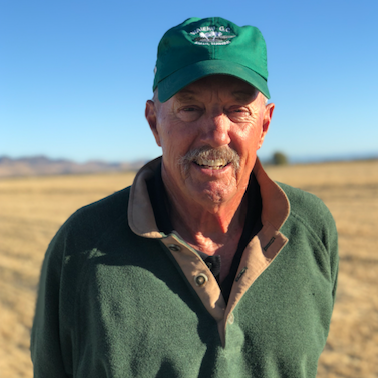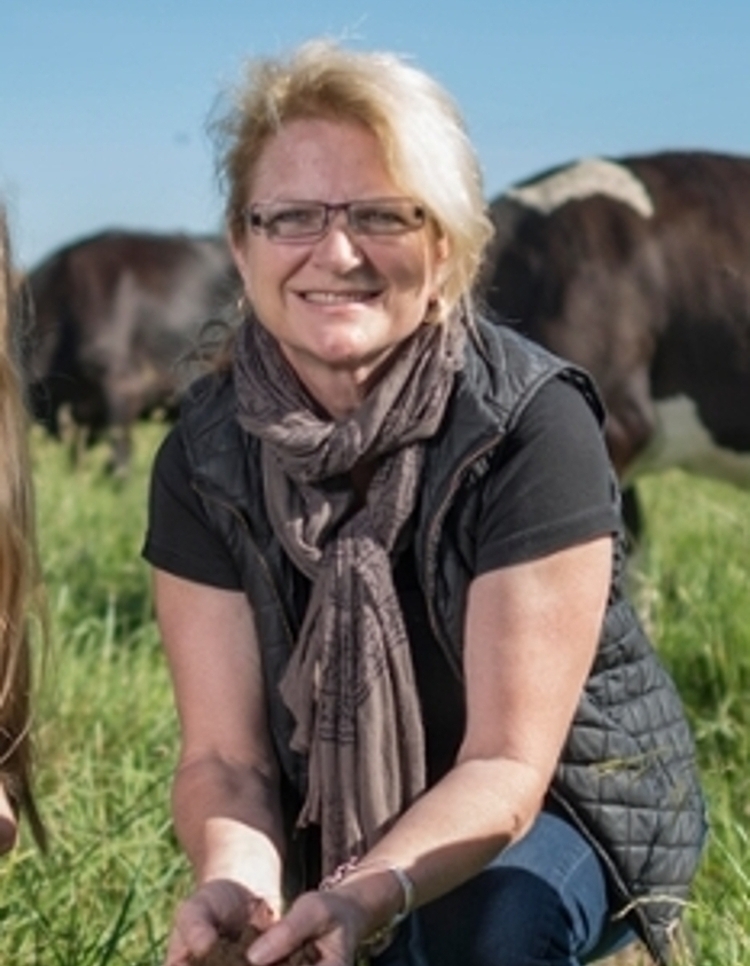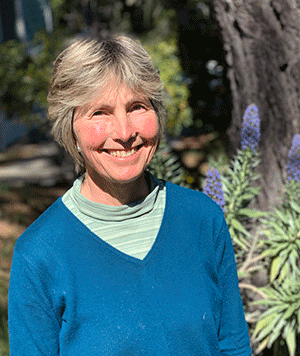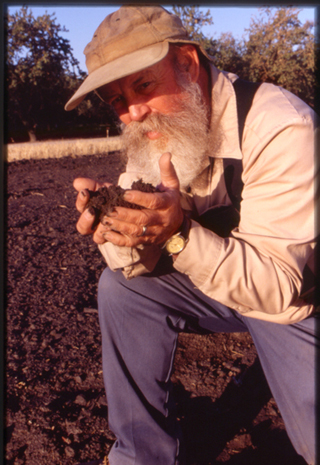Come learn about continued innovations in reducing/eliminating tillage in field-scale organic vegetable crops from the farmers leading the movement! Three California working farms--Phil Foster Ranches, Full Belly Farm, and Park Farming Organics--will report on their two years’ of research in commercial-scale, no-till organic vegetable production under Conservation Innovation Grant (CIG)-supported field experimentation. Topics covered will include cover-crop biomass digestion under plastic and weed barrier fabric, seasonal grazing trials, novel equipment, and investigation of fungal-to-bacterial ratios. We'll also hear research on the Carbon-to-Nitrogen ratio's influence on the long-term fate of carbon in farm soils. Join the speakers for a live, moderated Q&A following this presentation!
1 ASA credit available
Tuesday, April 6, 2021
12-1:30pm PT
Moderators:
Cynthia Daley, CSU Chico
Cynthia Daley is a professor within the College of Agriculture at California State University, Chico, where she supervises and directs the Organic Dairy Program (ODP), a program she founded together with dairy manager Darby Heffner and members of the organic dairy industry in 2006. With the launch of the ODP, Daley worked with a group of progressive organic dairy farmers to create the Western Organic Dairy Producers Alliance, a grassroots organization that serves as the voice for producers in the western region. Currently, Dr. Daley is Co-Director Co-Founder of the Regenerative Ag Initiative which represents an interdisciplinary team of faculty and farmers who recognize the ecological benefits of regenerative farming practices. Cindy is originally from Illinois, where her family has been actively engaged in the farming profession for more than four generations.
Pam Krone, California Marine Sanctuary Foundation | Monterey Bay National Marine Sanctuary | Agricultural Water Quality Alliance (AWQA)
Pam coordinates research, education and implementation efforts between the Sanctuary and partner organizations toward the goal of reducing pollution entering the Monterey Bay from agricultural runoff. Our efforts are directed toward helping growers conserve irrigation water used on crops and reduce the amount of agricultural pollutants (e.g. nutrients, pesticides and pathogens) that enter local streams and rivers that eventually empty into the ocean. She coordinates the Agricultural Water Quality Alliance (AWQA), a partnership effort between industry groups, resource conservation agencies, researchers and environmental organizations, with the aim of sustaining the beauty, viability, and productivity of our local farmlands while improving the water quality needed to restore and preserve the integrity of marine and stream ecosystems.
Presenters:
Phil Foster, Phil Foster Ranches
photo credit: Ted Holladay
Phil and Katherine Foster farm 250 acres of C.C.O.F. and I.F.O.A.M. certified organic fruit and vegetables on two ranches near San Juan Bautista and Hollister, California. They have a diverse range of crops, marketing up to 60 produce items at the peak of the season. They sell at the farm on Saturdays, at farmers markets, through local retail stores, local wholesalers, and several national wholesalers. They strive to maintain the Pinnacle label's high quality by treating our workers, our products, our land, our community and our planet with utmost respect.
Paul Muller, Full Belly Farm
photo credit: CSU Chico
Paul Muller has been growing certified organic vegetables since 1985 on Full Belly Farm in the Capay Valley of northern California, north of Sacramento and the San Francisco Bay area. He co-owns the operation with three other partners. It comprises of almost 400 acres where they grow 80 different crops in rotation (fruits, vegetables, herbs, nuts, grains, and flowers) along with products produced with the help of chickens, sheep, goats, and several cows. Full Belly successfully provides year-round employment for 80 people while selling the bulk of their produce within a 120-mile radius of the farm.
Scott Park, Park Farming Organics

Scott Park (along with his wife Ulla and son Brian) farms 1700 organic acres in the Sacramento Valley. The farm grows 10-20 different crops on 27 fields spread over 10 miles along the Sacramento River south of Meridian. The main crops are processing tomatoes, rice, corn, wheat, barley, dry beans, alfalfa, vine seed crops, squash, cauliflower, as well as various and sundry experimental crops (hemp, quinoa, stevia). Scott started his farming career in 1974 as a first generation farmer with a political theory degree (no ag background). The first 11 years were spent “cloning” what neighbors did, but observing the decline in soil quality along with increased chemical and fertilizer inputs led Park to begin shifting his focus in 1986 from conventional solutions to “natural” inputs. Without a template, the farm struggled for years, but serendipitous results kept the farm moving forward to where it is today- a relatively successful organic farm system that has similar size, crops, and yields to conventional California farms. The farm continues to evolve as the family “tweaks” the system to minimize inputs and let healthy soil and the surrounding environment do the problem solving for the farm.
Tom Willey, T&D Willey Farms
photo credit: Kit Morris
Tom and wife Denesse once farmed a 75 acre patch of the Central San Joaquin Valley in Madera, California. They have been farming since 1980 and Certified Organic by California Certified Organic Farmers (CCOF) since 1987. T&D Willey Farms once took advantage of all four seasons of our mild Mediterranean climate to harvest a year-round palette of bountiful vegetables. Tom and a staff of ten grew everything from Brussels Sprouts to Italian Zucchini, employing the latest in biological fertility systems. Tom and Denesse are proud and honored to be family farmers and took seriously their responsibility to grow the highest quality fresh produce without the use of toxic chemistry.









